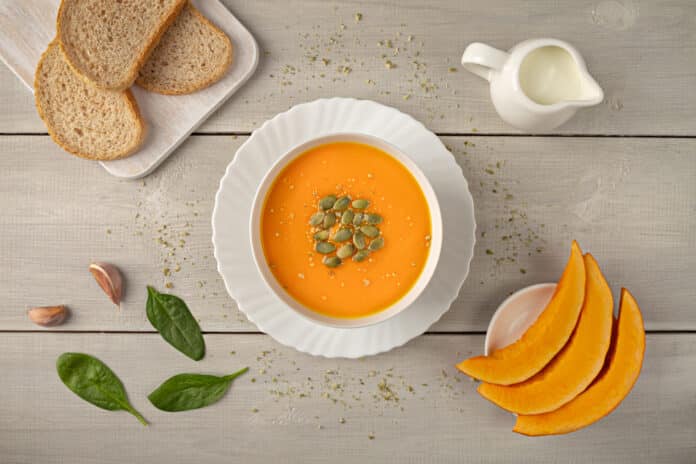
Pumpkins are popular and featured in many dishes around the holidays, particularly in the fall leading up to Thanksgiving. Pumpkins are a type of winter squash. Though many may consider pumpkins a vegetable, they are technically a fruit, thanks to the seeds found in their core.
However, the nutritional value found in a pumpkin is more comparable to a vegetable than some fruit. Regardless of what it is considered, pumpkin is a delicious and nutritious snack. Many pumpkin-flavored food items can be found, including pumpkin pie, pumpkin-flavored coffees, pumpkin bread, and more.
Apart from being a delicious seasonal food, pumpkins also offer several exciting health benefits.
Pumpkins Are Rich in Antioxidants
Free radicals make their way into the body through several avenues. Free radicals can cause oxidative stress in the body, leading to cellular changes and sometimes serious diseases such as cancer. Antioxidants help clear and neutralize free radicals in the body.
Pumpkins are rich in alpha-carotene, beta-carotene, and beta-cryptoxanthin. These are all antioxidants that help neutralize free radicals and prevent oxidative stress.
Pumpkin Can Boost Your Immune System
Pumpkin is high in beta-carotene, which your body turns into vitamin A. Vitamin A helps to strengthen the immune system and prevent disease. Additionally, pumpkin is high in vitamin C, which helps facilitate white blood cell production, helping the immune system to work more efficiently.
Pumpkins May Help Protect Your Vision
Pumpkins contain lutein, vitamin A, and zeaxanthin, all known to protect eyesight. Research shows that vitamin A deficiencies are a common cause of blindness. The lutein, vitamin A, and zeaxanthin found in pumpkins can reduce your risk of cataracts and age-related macular degeneration.
Pumpkin Is Nutrient Dense
Pumpkin is considered a nutrient-dense food, which packs many nutrients with a small calorie count. Pumpkin is only about 50 calories per cup! Pumpkin is a good source of fiber and several essential vitamins and minerals.
Pumpkin can be a great food for weight loss, considering its nutritional value at such a low-calorie count.
Pumpkins Can Benefit Heart Health
The potassium, vitamin C, and fiber in a pumpkin can help your body protect your cardiovascular system. Potassium is a key component in maintaining healthy circulation. Those with higher potassium intake are found to have a lower risk of stroke and lower blood pressure.
Pumpkins Can Promote Healthier Skin
Pumpkins are jam-packed with nutrients that benefit your skin’s health and overall appearance. Carotenoids, like beta-carotene, act as a natural barrier between your skin and UV exposure. Moreover, pumpkins contain high levels of vitamin C, essential for maintaining bright and glowing skin.
Conclusion
Pumpkins are not only a delicious seasonal snack – but they are also rich in several vitamins, minerals, and antioxidants. Eating pumpkin can have positive effects on everything from the immune system to the skin, eyesight, and more. So, pumpkin lovers rejoice – eating recipes with fresh pumpkins is just as good for you as they taste.


















